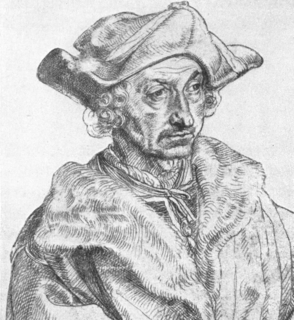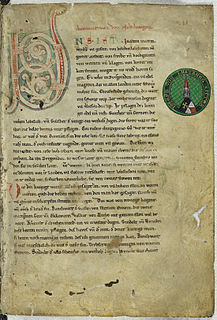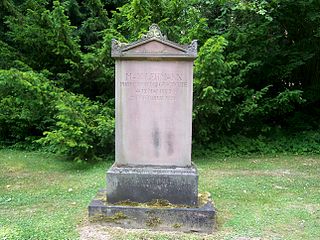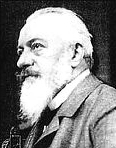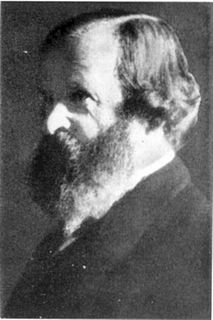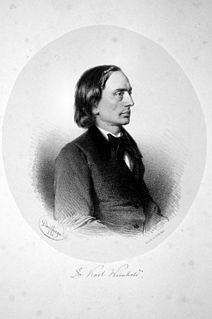
Friedrich Karl Theodor Zarncke (7 July 1825 –15 October 1891), German philologist, was born at Zahrensdorf, Mecklenburg-Schwerin, the son of a country pastor.

Germany, officially the Federal Republic of Germany, is a country in Central and Western Europe, lying between the Baltic and North Seas to the north, and the Alps to the south. It borders Denmark to the north, Poland and the Czech Republic to the east, Austria and Switzerland to the south, France to the southwest, and Luxembourg, Belgium and the Netherlands to the west.

Zahrensdorf is a former municipality in the Ludwigslust-Parchim district, in Mecklenburg-Vorpommern, Germany. Since 1 January 2016 it is part of the new municipality Kloster Tempzin.
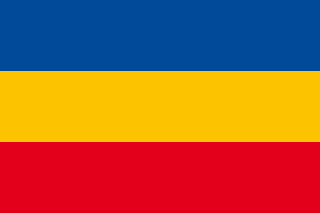
The Grand Duchy of Mecklenburg-Schwerin was a territory in Northern Germany held by the House of Mecklenburg residing at Schwerin. It was a sovereign member state of the German Confederation and became a federated state of the North German Confederation and finally of the German Empire in 1871.
He was educated at the Rostock gymnasium, and studied (1844–1847) at the universities of Rostock, Leipzig and Berlin. In 1848 he was employed in arranging the valuable library of Old German literature of Freiherr Karl Hartwig von Meusebach (1781–1847), and superintending its removal from Baumgartenbrück, near Potsdam, to the Royal Library at Berlin. [1]

Rostock is a city in the north German state Mecklenburg-Vorpommern. Rostock is on the Warnow river; the district of Warnemünde, 12 kilometres north of the city centre, is directly on the Baltic Sea coast. Rostock is the largest city in Mecklenburg-Vorpommern, as well as its only regiopolis.

The University of Rostock is a public university located in Rostock, Mecklenburg-Vorpommern, Germany. Founded in 1419, it is the third-oldest university in Germany. It is the oldest and largest university in continental northern Europe and the Baltic Sea area, and 8th oldest in Central Europe. It was the 5th university established in the Holy Roman Empire.

Karl Hartwig Gregor von Meusebach was a German lawyer and literary scholar born in Voigtstedt, Thuringia. He used the pseudonyms "Alban" and "Markus Hüpfinsholz" in his writings. He was father to politician John O. Meusebach (1812-1897).
In 1850 he founded the Literarisches Centralblatt für Deutschland in Leipzig. In 1852 he established himself as privatdozent at the university of Leipzig. In 1858 he was appointed full professor. [1]
Privatdozent or Privatdozentin, abbreviated PD, P.D. or Priv.-Doz., is an academic title similar to Adjunct professor in North America conferred at some European universities, especially in German-speaking countries, to someone who holds certain formal qualifications that denote an ability to teach a designated subject at university level. In its current usage, the title indicates that the holder has permission to teach and examine independently without having a chair. The title is not necessarily connected to a salaried position, but may entail a nominal obligation to teach.
